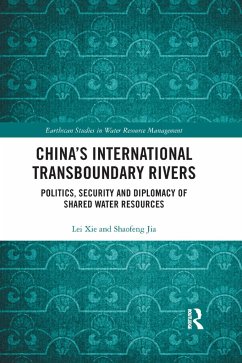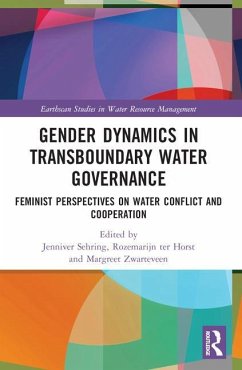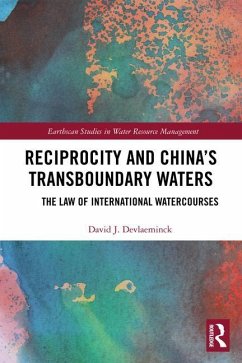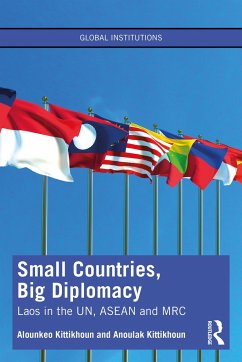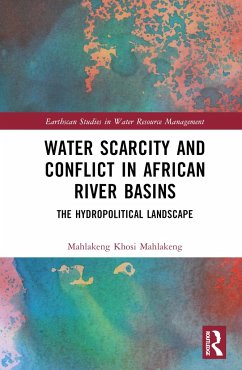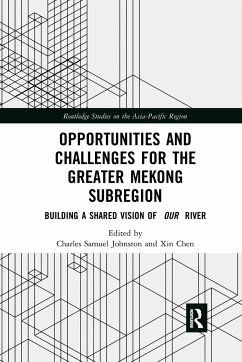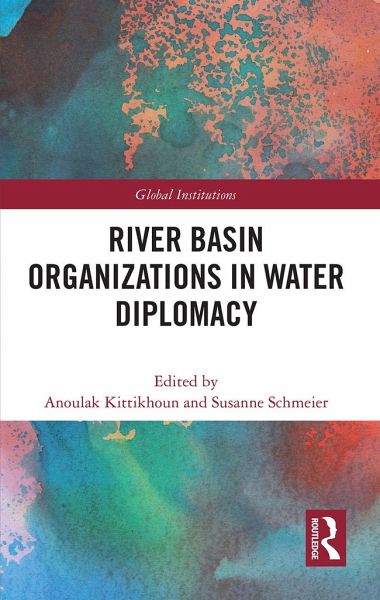
River Basin Organizations in Water Diplomacy
Versandkostenfrei!
Versandfertig in 6-10 Tagen
47,99 €
inkl. MwSt.

PAYBACK Punkte
24 °P sammeln!
Will tensions and disputes among states sharing international water courses and lakes turn into active conflicts? Addressing this question, the book shows that these concerns are more prominent due to the locations and underlying political dynamics of some of these large rivers and the strategic interests of major powers.Written by a combination of leading practitioners and academics, this book shows that states are more prone to cooperate and manage their transboundary issues over the use of their common water resources through peaceful means, and the key institutions they employ are internat...
Will tensions and disputes among states sharing international water courses and lakes turn into active conflicts? Addressing this question, the book shows that these concerns are more prominent due to the locations and underlying political dynamics of some of these large rivers and the strategic interests of major powers.
Written by a combination of leading practitioners and academics, this book shows that states are more prone to cooperate and manage their transboundary issues over the use of their common water resources through peaceful means, and the key institutions they employ are international river basin organizations (RBOs). Far from being mere technical institutions, RBOs are key mechanisms of water diplomacy with capacity and effectiveness varying on four key interrelated factors: their legal and institutional development, and the influence of their technical and strategic resources. The basins analyzed span all continents, from both developed and developing basins, including the Columbia, Great Lakes, Colorado, Senegal, Niger, Nile, Congo, Jordan, Helmand, Aral Sea, Mekong, Danube and Rhine.
Contributing to the academic discourse on transboundary water management and water conflict and cooperation, the book provides insights to policy-makers on which water diplomacy engagements can be successful, the strengths to build on and the pitfalls to avoid so that shared water resources are managed in a cooperative, sustainable and stable way.
Written by a combination of leading practitioners and academics, this book shows that states are more prone to cooperate and manage their transboundary issues over the use of their common water resources through peaceful means, and the key institutions they employ are international river basin organizations (RBOs). Far from being mere technical institutions, RBOs are key mechanisms of water diplomacy with capacity and effectiveness varying on four key interrelated factors: their legal and institutional development, and the influence of their technical and strategic resources. The basins analyzed span all continents, from both developed and developing basins, including the Columbia, Great Lakes, Colorado, Senegal, Niger, Nile, Congo, Jordan, Helmand, Aral Sea, Mekong, Danube and Rhine.
Contributing to the academic discourse on transboundary water management and water conflict and cooperation, the book provides insights to policy-makers on which water diplomacy engagements can be successful, the strengths to build on and the pitfalls to avoid so that shared water resources are managed in a cooperative, sustainable and stable way.






